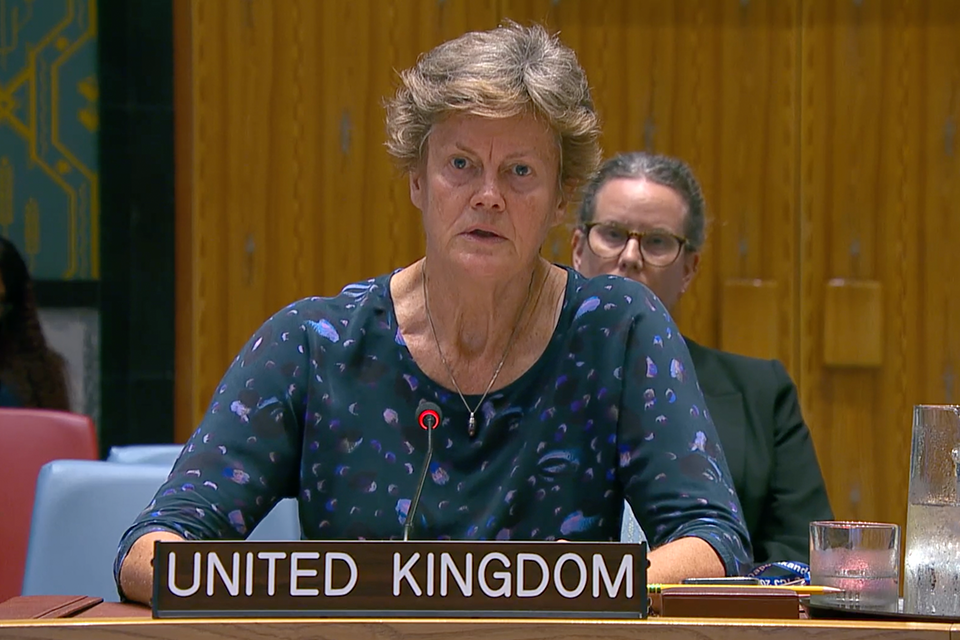- Prisoners made to earn their way to release through good behaviour – or face longer behind bars
- No early automatic release for badly behaved offenders
- A massive expansion in the surveillance of offenders through increased use of tagging – backed by around 45% increase in probation funding of up to £700 million
- Reforms follow confirmation of a further £4.7 billion prison building investment – backing the largest expansion since the Victorians
Landmark reforms that will end the prison crisis the government inherited, which threatens the complete breakdown of law and order on Britain’s streets, have been announced by the Lord Chancellor, Shabana Mahmood.
The sweeping review, published today by former Justice Secretary David Gauke, recommends comprehensively overhaul sentencing – ensuring jails never run out of space again and dangerous offenders can be kept off the streets. The majority of the recommendations have been accepted today in principle – with a Sentencing Bill due in the coming months.
The reforms will put public protection and cutting crime at the heart of the justice system and ensure the public is never put at risk again from the threat of prisons running out of space and police unable to make arrests.
In the past 14 years just 500 places were added to the prison estate, despite the prison population nearly doubling over the last 30 years. To put an end to this crisis, the government confirmed plans last week to invest £4.7 billion more in prison building, putting the government on track to open 14,000 places by 2031. It will be the largest prison expansion since the Victorian era, and 2,400 places have already been opened since July 2024.
Despite this unprecedented construction, the prison population is soaring – with the latest projections showing the country’s jails will be bust within months and 9,500 places short by early 2028 without further action. The government is taking the decisive action needed so we can protect the public and never allow the country to face the breakdown of our justice system again.
Making the case before Parliament today, the Lord Chancellor said
Our prisons are, once again, running out of space and it is vital that the implications are understood. If our prisons collapse, courts are forced to suspend trials, the police must halt their arrests. Crime goes unpunished, criminals run amok and chaos reigns. We face the breakdown of law and order in this country.
The prison population is now rising by 3,000 each year and we are heading back towards zero capacity. It now falls to this Government to end this cycle of crisis. That starts by building prisons….This investment is necessary but not sufficient. We cannot build our way out of this crisis. Despite building as quickly as we can, demand for places will outstrip supply by 9,500 in early 2028.
Reforms accepted today will once and for all put prisons on a sustainable footing while protecting the public from dangerous criminals.
One key change will be a new “earned progression model” that will see prisoners earn their way to release through good behaviour or face longer in jail. There will be no automatic release for prisoners who misbehave.
The changes mean
- A prisoner’s release date will now be more dependent on their behaviour. We want to reduce violence in prison and make sure more prisoners engage with activities like education and employment that will reduce crime.
- All offenders on standard determinate sentences will spend at least one-third of their sentence behind bars and have to earn their release at this point or face longer behind bars for bad behaviour.
- While we expect most offenders on these sentences to be released between 33 and 50 per cent – there is no upper limit and the very worst behaved offenders could spend longer in prison.
- Those serving standard determinate sentences for more serious offences will serve at least half in prison.
While David Gauke has suggested maximums of 50 and 67 percent in custody, respectively, for these sentences, the government has decided not to impose these.
In addition, the government has rejected the review’s recommendation to cut the minimum prison term for extended determinate sentences to 50%. The serious violent and sexual offenders serving these sentences will have to serve at least two-thirds of their sentence and their release will continue to be down to the Parole Board.
To enforce this approach, the government will introduce a tougher adjudication regime so that bad behaviour in prisons is properly punished.
When released, offenders will enter a new period of “intensive supervision” which will see tens of thousands more offenders tagged and many more placed under home detention.
To support the Probation Service, the government will significantly increase its funding – by around 45% by the final year of the spending review period. This means the annual budget of around £1.6 billion today will rise by up to £700m by 2028/29.
Other major changes include
- Earlier deportation of foreign national offenders who are blocking up jails – removing foreign prisoners who have already served 30% of their custodial term, down from 50%. The Government will also work up plans to remove foreign prisoners serving less than three years as soon as possible after their sentencing. This builds on the government’s work to surge removals of foreign national offenders, with 4,436 foreign national offenders removed since July 2024 – a 14% increase compared to the same period 12 months prior.
- A presumption against custodial sentences of less than a year – in favour of tough community sentences that better punish offenders and stop them reoffending. Currently, almost 60 percent of those receiving a prison sentence of 12 months or less reoffended within a year. Judges will still retain the power to hand down sentences of 12 months or less to offenders who have breached a court order, including restraining orders and Domestic Abuse Protection Orders, and in exceptional circumstances.
The government will expand tough punishments outside jail to force offenders to pay back the victims and communities they have harmed. This includes
- Greater use of curfews and exclusion zones to deliver tougher supervision than ever on criminals.
- Exploring wider powers for judges to punish offenders by blocking them from attending football matches, banning them from driving or travelling abroad through an expansion of ‘ancillary orders’.
- More Intensive Supervision Courts to tackle the root causes of crime such as alcohol and drug abuse – forcing repeat offenders to take part in tough treatment programmes or face prison.
The Justice Secretary will also go further than the Review’s recommendations
- Developing new ways in which offenders can undertake tough, unpaid work, including doing a job for a private sector company with payment going to support victims. This could also include working closely with councils to find the jobs that need doing, including street cleaning and filling in potholes, and assigning an unpaid work team to complete them.
- Expanding the use of ‘medicines which manage problematic sexual arousal’, often referred to as chemical suppressants, on sex offenders following a pilot in south-west England to two additional regions, as part of a nationwide rollout, while exploring making this mandatory.
The Lord Chancellor added
When discussing sentencing, it is too easy to focus on how we punish offenders when we should talk more about victims. Everything I am announcing today, is in pursuit of a justice system that serves victims.
If our prisons collapse, it is victims who pay the price and by cutting reoffending, we will have fewer victims in future.
As part of the government’s safer streets mission and to make sure victims see justice done, the Lord Chancellor has also accepted recommendations to
- Increase tagging for VAWG perpetrators – enabling the closer monitoring of cowardly abusers to reassure victims, remove the onus from them to prove breaches had occurred.
- Identify perpetrators of domestic abuse at sentencing – requiring judges to flag domestic abuse at sentencing so prisons, probation and police can better identify and manage abusers.
- Expand Specialist Domestic Abuse Courts – bolstering support for victims and ensuring their abusers are properly supervised and rehabilitated.
- Bolster transparency for victims at sentencing – including the provision of free copies of judges’ sentencing remarks for victims of rape and other sexual offences, and ensuring they receive the information and support they need to navigate the criminal justice system.
Currently offenders can be given exclusion zones, preventing offenders from entering areas their victims might be. Going beyond the Review’s recommendations, the government will explore changes so some offenders are instead locked into specific ‘restriction zones’ monitored by GPS tags so victims can feel safe everywhere else.







